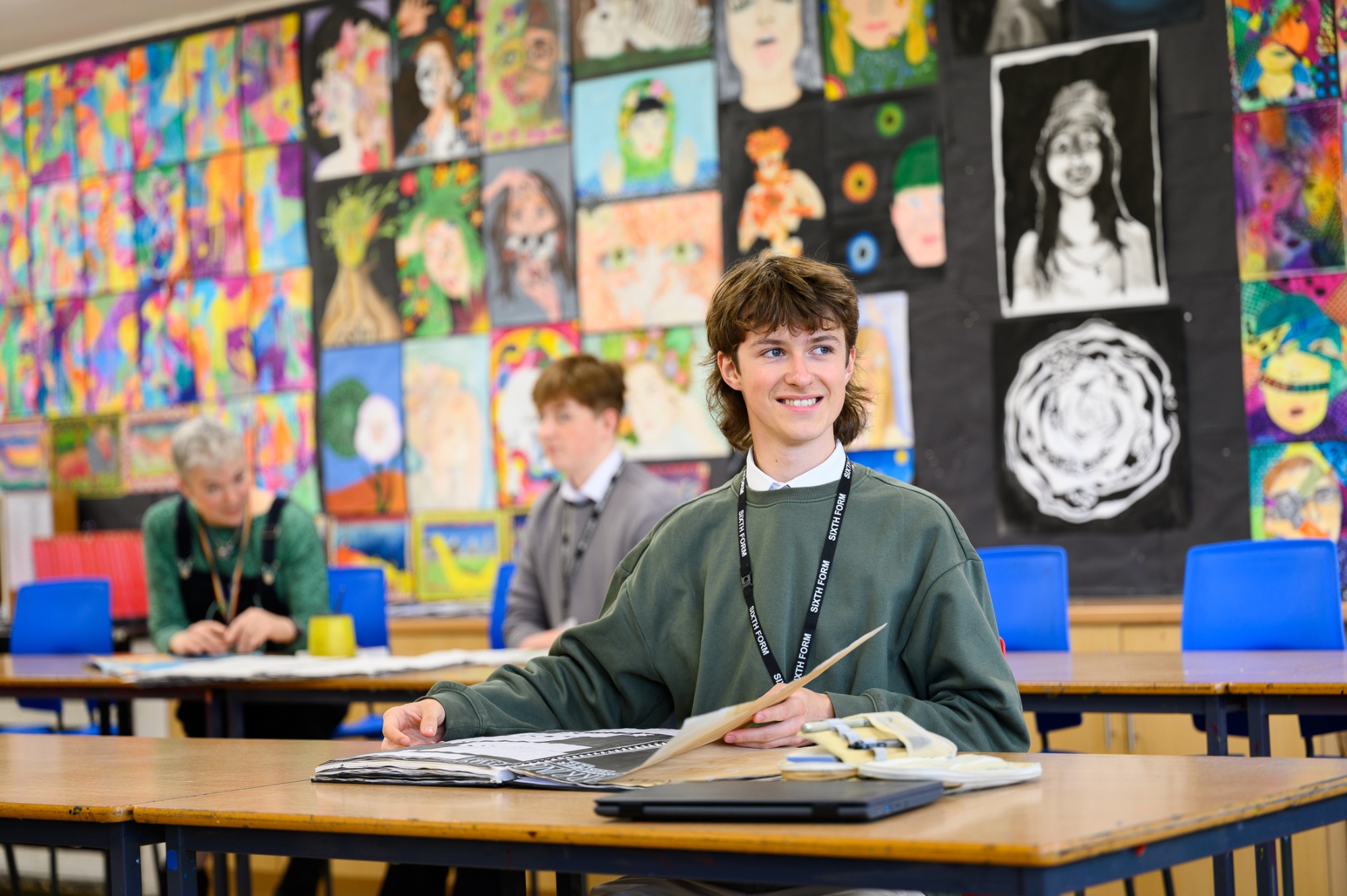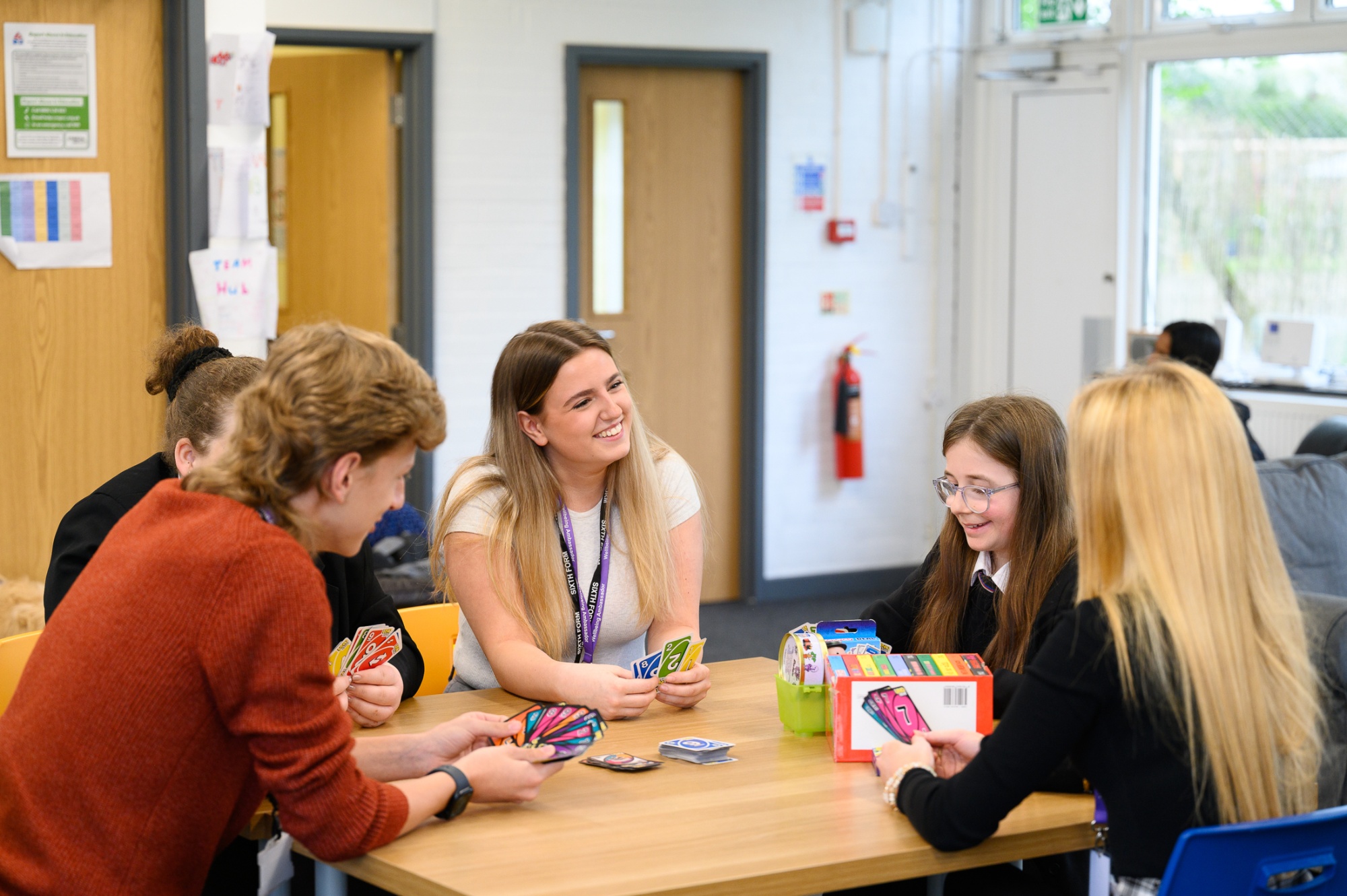French
Examination Board | AQA
Specification Code | 8658
Subject Content
Year 12
Topic 1: Aspect of French-speaking society: Current trends.
- Changing families
- Cyber society
- Volunteering
Topic 2: Artistic culture in the French-speaking world.
- A proud cultural heritage.
- Contemporary French music
- Cinema
Study of a Film: L’auberge Espagnole
Study of a Book: Un Sac de Bille
Year 13
Topic 3: Current issues in French-speaking society.
- Positive aspects of a diverse society.
- Marginalisation.
- Treatment of criminals.
Topic 4: Aspects of political life in French-speaking society.
- Young people’s political commitment.
- Strikes and protests.
- Immigration.
Individual research project: Planning, research and preparation for an individual research project relating to French language culture. Topic of student choice.
Assessment Details
The A-level course is linear, and will be assessed at the end of Year 13. There are three exam components.
Paper 1: Listening, Reading and Writing.
-
2 hours 30 minutes
-
50% of A-Level
Paper 2: Writing (Two essays)
-
2 hours
-
20% of A-Level
Paper 3: Speaking
-
21 to 23 minutes, including 5 minutes of preparation time
-
30% of A-Level
These exams assess the course’s four key topic areas, with Paper Two focusing on the book and the film studied in Year 12.
Additionally, there are regular vocabulary tests, end of unit assessments (six in Year 12, six in Y13) and mock examinations as per the school calendar in both Years 12 and 13.
Additional Equipment Recommended
- A bilingual dictionary
What can I do to support my child at home?
- Take interest and ask them about their French lessons
- Talk to them about their independent research projects
- Ensure they have completed any homework or independent revision
- Encourage practice with any French-speaking friends or family
- Put the French audio/subtitles on a favourite family film
- Play French-language radio stations if you have digital or internet radio
- Change the language settings on your child’s phone or computer to French
- Encourage visits to exhibitions or museums relating to French culture
- If possible, consider a family holiday to a French-speaking country!
- If possible, consider doing work experience in a French-speaking country!
- Allow your child to find a French-language series to watch on Netflix (please pre-watch to check for appropriateness!)
Websites
- aqa.org.uk/subjects/languages/as-and-a-level/french-7652
- bonjourdefrance.co.uk/learn-french-online/grammar/exercises-intermediate
- collinsdictionary.com/dictionary/English-French
- senecalearning.com
- memrise.com
- languagesonline.org.uk
- conjugator.reverso.net/conjugation-french
- francais.lingolia.com
- lingua.com/french/reading
- monquotidien.playbacpresse.fr
Books
- A bilingual dictionary.
- If you wish to purchase a revision guide for your child, choose one which contains audio (download) to practice listening skills.
Apps
Teaching Staff Contact Details
Head of MFL
Ms Goddard - rgoddard@cottesloe.bucks.sch.uk
Teacher of French
Mrs McMinn - emcminn@cottesloe.bucks.sch.uk
Teacher of French
Miss Mesnil - lmesnil@cottesloe.bucks.sch.uk
French Curriculum Intent and Ethos
Intent
The Modern Foreign Language curriculum at The Cottesloe School offers students of all abilities the opportunity to experience the culture and character of two globally significant languages. Encouraged to ask questions about daily life in Francophone and German-speaking countries, students’ personal experiences become a facilitator in bridging the foreign and the familiar.
Students develop critical thinking and problem-solving skills right from the beginning of their programme of study as they find links between English, French and German. As the complexity of the language taught progresses, so does students’ resilience, enabling them to engage with the rigours of the GCSE curriculum. Hard-hitting issues such as youth addiction and climate change force GCSE linguists to consider their rights and responsibilities as global citizens in a truly international context.
The benefits of obtaining a GCSE language for further study and employment are also emphasised to students, as are the merits of continuing at A-level. Students will finish their MFL programme of study knowing they have developed a skill set to help them persevere when challenged, speak their minds with confidence, and respect and appreciate the diversity of the world around them.
Ethos
The languages department believes that there is no failure, only a first step on the road to becoming a confident and fluent linguist! If at first you don’t succeed, try again! We all make mistakes, and if you aren’t making mistakes whilst learning a language, you’re not doing it right! By learning – and making mistakes! – together we can all become more tolerant, more collaborative, more resilient and, most importantly, better communicators. That’s how you learn a language, and we hope you’ll learn with us!
Careers in Modern Foreign Language
Studying MFL opens doors to a wide range of exciting and fulfilling careers. Some potential career paths include:
- Translation and interpreting: Working as a translator or interpreter in various industries, such as business, law, or healthcare.
- Teaching and education: Becoming a language teacher or lecturer at schools, colleges, or universities.
- International business: Pursuing a career in international business, diplomacy, or trade.
- Journalism and media: Working as a journalist, broadcaster, or content creator for international media outlets.
- Tourism and hospitality: Working in the tourism industry, such as a tour guide, hotel manager, or travel agent.
- Government and public service: Working for government departments or international organisations.
- Law and law enforcement: Working as a legal translator, interpreter, or investigator.
- The arts and humanities: Pursuing careers in fields such as literature, history, or cultural studies.






